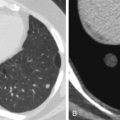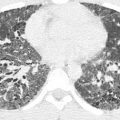Stage 4 bladder cancer represents an advanced phase of the disease, often involving spread beyond the bladder to distant organs or lymph nodes. Despite the seriousness of the diagnosis, multiple modern treatment strategies are now available to improve outcomes, manage symptoms, and enhance quality of life. Advances in personalized medicine and the identification of biomarkers have helped tailor therapies more effectively, giving hope to patients undergoing stage 4 bladder cancer treatment.
What Defines Stage 4 Bladder Cancer?
At this stage, bladder cancer is frequently metastatic, having spread to areas such as the lungs, bones, liver, or abdominal lining. The tumor may also invade surrounding structures like the pelvic wall, often classifying it as muscle-invasive. Treatment typically involves a multidisciplinary approach aimed at slowing progression, preserving function, and improving survival.
Primary Treatment Approaches
Managing stage 4 bladder cancer usually involves a combination of systemic and localized treatments. The right plan depends on how far the cancer has spread, the patient’s general health, and the tumor’s biological profile.
Chemotherapy
Chemotherapy continues to be a key component of advanced bladder cancer management. It is often used to control the spread of the disease and reduce the tumor burden. This approach is usually delivered in cycles and may be administered before or after local treatments to improve results.
Immunotherapy
Immunotherapy is another widely used option for advanced stages of bladder cancer. It works by activating the body’s immune system to recognize and attack cancer cells more effectively. This method can be particularly helpful in cases where chemotherapy is no longer effective.
Immunotherapy may be especially suited to patients with specific biomarkers, helping guide doctors toward the best therapy for each individual case.
Surgical Interventions
Even in advanced stages, surgery can play a role — particularly in symptom control or for carefully selected patients with limited metastatic spread.
- Cystectomy, or the removal of the bladder, may be considered when the cancer remains primarily in the bladder but cannot be managed through other therapies.
- TURBT (transurethral resection of bladder tumor) is a less invasive procedure often used to alleviate symptoms such as bleeding or urinary blockage.
These procedures are typically performed by specialists in urology, who evaluate the scope of the disease and help determine the most appropriate surgical strategy.
Radiation Therapy
Radiation therapy is frequently used for palliative purposes in stage 4 cases. It can help relieve discomfort caused by large or invasive tumors and may be used alone or in combination with other treatments.
Benefits of radiation therapy include:
- Controlling local symptoms such as pain or bleeding
- Treating tumors that are inoperable
- Serving as an option for patients unfit for surgery
Role of Intravesical Therapy
While intravesical therapy is more common in earlier stages, it may still be used in certain situations, such as treating localized symptoms or recurrences in the bladder. It involves placing therapeutic agents directly into the bladder through a catheter, allowing targeted treatment with minimal systemic effects.
Monitoring and Personalized Care
Ongoing monitoring is essential for managing recurrence and adjusting treatment plans. Imaging studies, physical assessments, and tumor marker testing — such as biomarker and CA-125 evaluation — play a role in tracking disease status. Personalized approaches based on genes and other molecular data are increasingly guiding decisions in stage 4 bladder cancer treatment.
Booking Health: Your Partner in Advanced Cancer Care
Patients seeking access to the best treatment abroad often turn to trusted platforms like Booking Health. As a medical travel service, Booking Health connects individuals with modern hospitals and leading specialists in urology, oncology, and surgical care. Their team helps organize every aspect of your journey — from initial consultations to follow-up care — ensuring a smooth, transparent, and professionally managed experience.
If you or a loved one has been diagnosed with advanced bladder cancer, take the first step toward world-class care by reaching out to Booking Health today.
Stay updated, free articles. Join our Telegram channel

Full access? Get Clinical Tree








